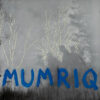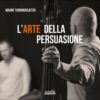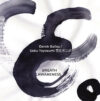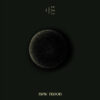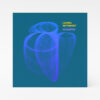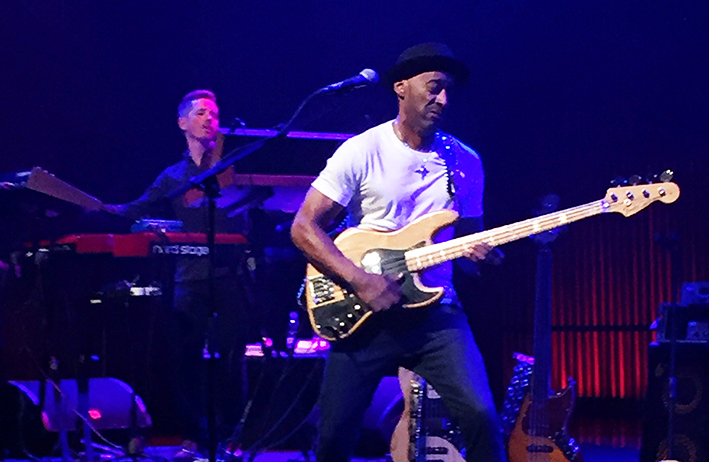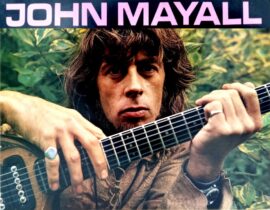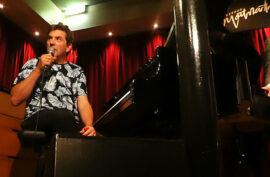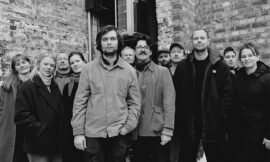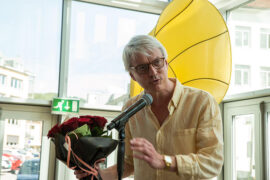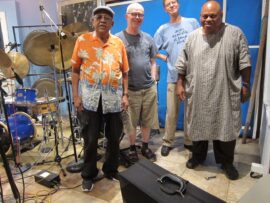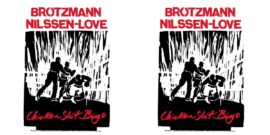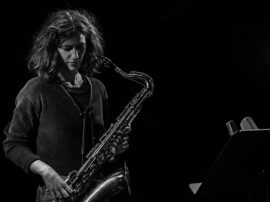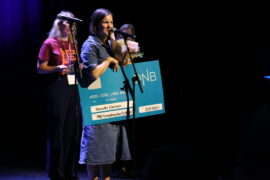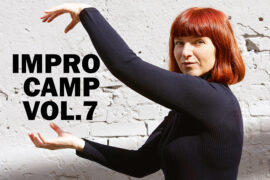The two-time Grammy Award-winning Brooklyn bassist and his five-piece band had landed in Copenhagen for the last night of the 2019 Jazz Festival concerts. The DR Koncerthuset is filled with “eager of basslines” fans, but we are all sure that Marcus Miller is used to this sort of welcoming thought. Consired one of the best bass players alive for many, Miller does not need any introduction at all. Those less familiar with the genre, however, may recognise the name from a few very enthusiastic lines dedicated to him in Miles Davis’ autobiography. As well, Miller famously made a major contribution, both as composer and producer, to Davis’ 1986 release “Tutu”.
His rich resume of collaborations include more famous songwriting and production partnership with Luther Vandross and artists as varied as Herbie Hancock, Bob James, Chaka Khan, David Sanborn, Roberta Flack, Aretha Franklin, Al Jarreau and Wayne Shorter.
Marcus Miller is one of the few artists that can cross the worlds of funk, hip hop and jazz and satisfy all audiences. His well-received latest album “Laid Black” (Blue Note Records, 2018)
is a rubber necking affair that will get your head bobbing to the grooves, making it easy to overlook that this guy essentially invented the bass licks which dominate this soulful release.
The album follows on from the previous “Afrodeezia” (2015), a mix of jazz, funk and soul, influenced by West African, South American and Caribbean sounds. Afrodeezia was inspired by his role as a UNESCO spokesperson for the Slave Routes Project.
In Laid Black Marcus brings the music “home”, incorporating modern styles such as trap, hiphop, R&B and gospel. The live set was a mix of new material and old classics, never catching the audience off guard but not letting them get too comfortable in one vibe either. It showcased both the individual players’ skills and the elasticity, range and explosive energy of the group as a whole.
Live on stage, any reservations about Miller’s methodology quickly vanish, largely due to the way he and his band focus on narrative. Instead of aimless shredding, each band member is able to improvise coherently, each given time to take us on a journey.
There was all the technical brilliance you would expect from a Marcus Miller concert as well as clear fellowship between the musicians. Russell Gunn‘s playful trumpet work came to the heart of each of us, while battling Alex Han’s saxophone beauty and melody lines for the spotlight.
Alex Bailey on drums did stellar work navigating the complex trap and hip hop beats down to ultrasmooth rhythm phrasing and a powerrful solo towards the end.
Keyboardist James Francies whisked us from Motown into churchish sounds, and costantly in the show Julian Pollack – on a second and more sinthy-vibing keys’ set-up – joins them to compliment Miller’s virtuosity on the bass.
The act itself, in its own way, is terrific storyteller: he introduced a piece coming from one of the most influencial records in his career, Bitches Brew by Miles Davis: Russell Gunn and Alex Han were terrific, goosebumps finally, Marcus Miller takes a shiny long bass clarinet among his
bass-guitars and does his thing. The title track of Davis’ “electric” album is covered in peerless glory, in that moment I was pretty happy to be sitting and exposed to that, sort of lost for 7 or 8 minutes.
There’s no doubting that Marcus Miller’s music revs up through the gears in a live
setting and the mastery which reached the room sound was breathless this time, good job to all the technician involved, to DR rooms and to the all the great performers hanging around those places.
The musical eloquence he’d clearly been striving for all evening was met surely during the last 10 minutes’ set, the one-time studio/session player really knows how “to electrify” the audience.
Clapping hands, smiles, stomping feet and smiles again … so thanks Marcus cause we are all surely happy to have been with you for an energetic injection of low frequencies.
Text and photo: Nicola Semprini



